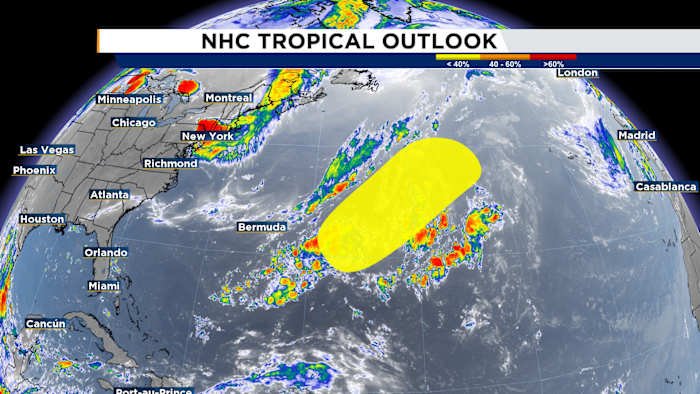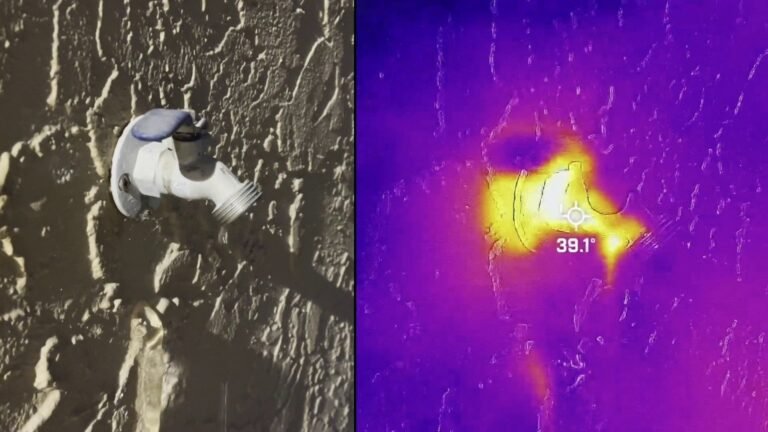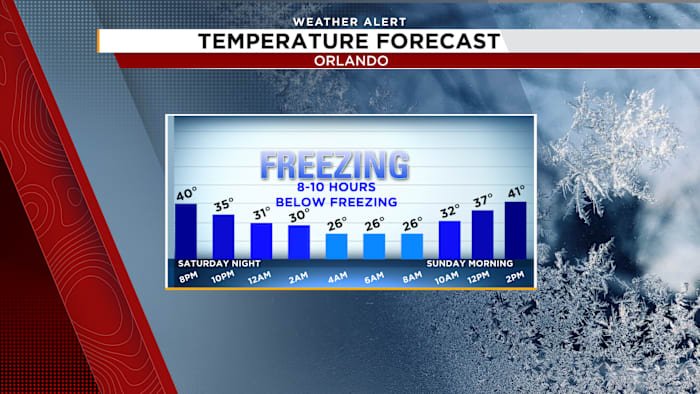Daily Orlando News – As hurricane season continues, the National Hurricane Center (NHC) is keeping a close eye on a new feature over the central Atlantic Ocean, highlighting it as an area of interest for possible tropical development. While the NHC currently classifies the chance of this system forming into a tropical cyclone as low over the next two to seven days, it’s still important for Orlando residents to stay informed. Let’s break down what this means for Central Florida and why we should pay attention, even to systems far offshore.
What Is the NHC Monitoring?
The National Hurricane Center regularly scans the Atlantic basin for any signs of tropical disturbances that could become threats to land. This week, their focus has shifted to a broad area of showers and thunderstorms located over the central Atlantic, several hundred miles from the Caribbean. According to the NHC’s latest update, this feature is showing some signs of organization, but environmental conditions are currently only marginally favorable for further development.
Right now, the NHC estimates the system has less than a 20% chance of developing into a tropical cyclone in the next seven days. That means it is likely to remain a weak disturbance, but the NHC will continue to monitor it for any changes.
Why Does a Central Atlantic System Matter to Orlando?
At first glance, a disturbance way out in the central Atlantic might not seem relevant to Orlando or the rest of Central Florida. However, the 2024 hurricane season has already shown how quickly conditions can change. Even low-chance systems can evolve, and their projected paths may shift toward Florida with little warning, especially if steering winds change.
Furthermore, disturbances like this serve as reminders that hurricane season lasts through November, and the tropics remain active. Monitoring these features helps Orlando residents stay prepared, keep up with emergency plans, and avoid being caught off guard if a system does begin to strengthen and head our way.
Tropical Development: What Are the Chances?
According to the NHC, the area of interest currently faces a number of obstacles that make development unlikely. Wind shear—high winds at different heights in the atmosphere—can disrupt storm formation. Additionally, the ocean waters in the central Atlantic are not as warm as those closer to the Caribbean or the Gulf of Mexico, which further inhibits rapid development.
Despite these limiting factors, meteorologists stress the importance of monitoring “low chance” systems. Sometimes, environmental conditions can improve unexpectedly, allowing a storm to gain strength or change direction. That’s why the NHC provides daily updates and why it’s wise for Orlando residents to keep an eye on the forecast, especially during the peak of hurricane season.
Keeping Orlando Prepared During Hurricane Season
Even when systems are far from Florida, Orlando residents should use these early alerts as reminders to review hurricane preparedness plans. Take the time to:
- Check and restock emergency kits (water, non-perishable food, batteries, medications, etc.)
- Review your family’s hurricane evacuation plan
- Make sure your home insurance and flood insurance policies are up to date
- Follow NHC and trusted local news outlets for updates
Staying informed and ready ensures that if a tropical system does approach Florida—even from a distant part of the Atlantic—our community can respond quickly and effectively.
How to Stay Updated
The NHC offers frequent updates on tropical weather outlooks, potential storm tracks, and risk levels. You can find real-time information on their website or sign up for alerts from the National Weather Service. Here at Daily Orlando News, we’ll continue to provide timely updates, expert analysis, and practical tips to help Central Florida navigate hurricane season safely.
For the latest on this and other weather developments, keep checking our homepage and consider following our social media channels for breaking alerts.
Conclusion: Your Thoughts Matter
While the current tropical disturbance over the central Atlantic poses a low risk for development, Orlando’s weather can change quickly. Staying informed and prepared is always the best strategy for Central Florida residents. Have you updated your hurricane kit this season? Do you have questions about how to prepare? Share your thoughts, tips, or questions in the comments below—we’d love to hear from you!
















